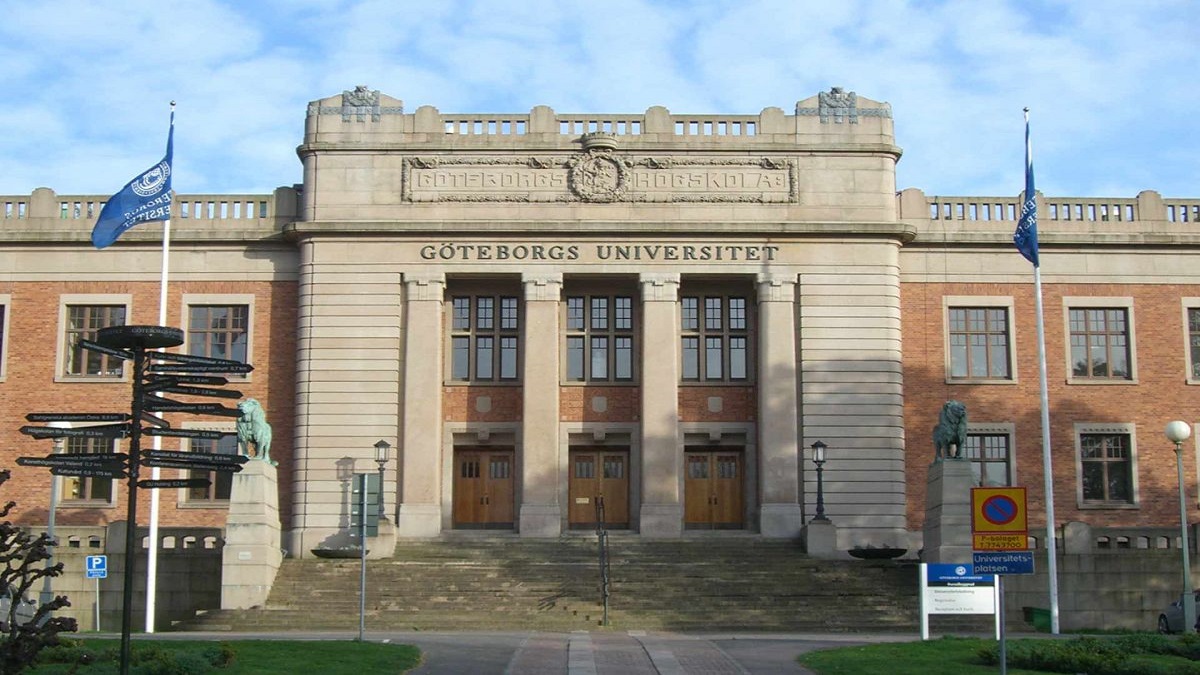The University of Gothenburg tackles society’s challenges with diverse knowledge. 56 000 students and 6 600 employees make the university a large and inspiring place to work and study. Strong research and attractive study programmes attract scientists and students from around the world. With new knowledge and new perspectives, the University contributes to a better future.
The Department of Physics at the University of Gothenburg is located in the center of Gothenburg, with approximately 100 employees. The communication routes are good both nationally and internationally. The research focuses within the fields of Atom- and Molecular Physics, Condensed Matter Physics and Spintronics, and Complex Systems and Biophysics and is performed in an international environment with extensive national and international collaborations. The education programs at the Department include Bachelor- and Master programs in Physics, physics teacher-training programs, as well as outreach courses in Physics aimed for the general public. Gothenburg Physics Centre is a close collaboration with three other departments within the Faculty of Science and Chalmers University of Technology, which creates an innovative environment for all researchers and students at the department.
For further information about the Department of Physics, please visit our website at www.physics.gu.se/english. More information about Gothenburg Physics Centre can be found at www.chalmers.se/en/centres/gpc/Pages/default.aspx.
The research group in theoretical plasma physics is interested in what happens when ultra-intense laser pulses interact with matter, such as gases, solid targets, plasmas, and particle beams. Essential tools in our research activity are advanced computational models, adapted for parallel computing, where we are at the cutting edge of development. We have both applied and fundamental projects, such as the development of compact radiation sources and questions of fundamental physics in strong fields, respectively. The group has close collaborations with experimental groups and contributes to the design, planning and interpretation of experiments. Our group is expected to grow over the next few years, giving greater possibilities for engaging in collaborative working between theory and experiments in laser-matter interactions.
Job assignments
Being a PhD is a 4 year full-time studies and leads to a Doctoral Degree. Those who are employed as doctoral students must primarily devote themselves to their doctoral education. However, a doctoral student may to a limited extent work with education, research and administration. Such work may, before the doctoral degree is completed, not cover more than 20 % of full-time work.
Eligibility
To be eligible for third-cycle studies, the applicant must meet both the general and specific entry requirements:
A person meets the general entry requirements for third-cycle courses and study programs if he or she:
1. has been awarded a second-cycle qualification,
2. has satisfied the requirements for courses comprising at least 240 credits of which at least 60 credits were awarded in the second-cycle, or
3. has acquired substantially equivalent knowledge in some other way in Sweden or abroad.
To meet the specific entry requirements for third-cycle studies, applicants must: (i) have a second-cycle (advanced-level) degree in a relevant* subject area in the natural sciences, or (ii) have completed studies for at least 60 higher education credits at a second-cycle level in relevant subject areas in the natural sciences, or (iii) have completed a corresponding programme of relevance to the planned third-cycle programme, in Sweden or in another country, or have equivalent qualifications.
*Relevant for the planned third-cycle education
The specific entry requirements also include an acceptable command of spoken and written English. Guidelines for assessing English proficiency may include a minimum score of 550 on the TOEFL test (or 213 on the TOEFL-CBT, or 79 on the TOEFL-iBT).
Assessment
Regulations for the evaluation of qualifications for education on a doctoral level are given in SFS 1993:100.
Employment
A new employment as a PhD student applies for a maximum of one year. The employment may be prolonged for up to two years at a time. The total employment period may not be longer than the equivalent of four years of full time doctoral studies.
Type of employment: Fixed-term employment, 4 years full time
Extent: 100 %
Location: Department of Physics, Gothenburg
First day of employment: 2022-10-01
University applies a local salary agreement of graduate students.
Appointment procedure
Please apply online
The application shall include:
Cover letter with an explanation of why you apply for the position
CV including scientific publications
Copy of exam certificate
Two referees (name, telephone number, relation)
For further information regarding the position
Tom Blackburn, Assistant professor, 0701902835, tom.blackburn@physics.gu.se
Unions
Union representatives at the University of Gothenburg: http://www.gu.se/english/about_the_university/job-opportunities/union-representatives
How to apply
In order to apply for a position at the University of Gothenburg, you have to register an account in our online recruitment system. It is the responsibility of the applicant to ensure that the application is complete in accordance with the instructions in the job advertisement, and that it is submitted before the deadline. The selection of candidates is made based of the qualifications registered in the application.
The University of Gothenburg promotes equal opportunities, equality and diversity.
Salaries for doctoral students are regulated in a local agreement at the University.
Applications will be destroyed or returned (upon request) two years after the decision of employment has become final. Applications from the employed and from those who appeal the decision will not be returned.
The University works actively to achieve a working environment with equal conditions, and values the qualities that diversity brings to its operations.
Salaries are set individually at the University.
In accordance with the National Archives of Sweden’s regulations, the University must archive application documents for two years after the appointment is filled. If you request that your documents are returned, they will be returned to you once the two years have passed. Otherwise, they will be destroyed.
In connection to this recruitment, we have already decided which recruitment channels we should use. We therefore decline further contact with vendors, recruitment and staffing companies.
Apply
